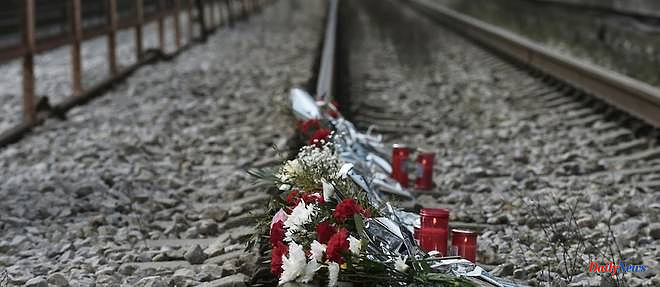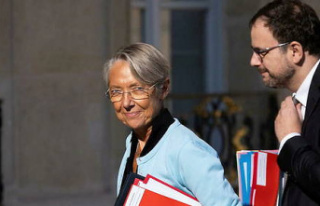More than two weeks after the deadly train collision in Greece, the railway regulator on Friday denounced "serious shortcomings" in the safety of the rail network, in particular in the "inadequate" training of staff such as station masters.
According to the first conclusions of this independent authority, "the training of personnel by the OSE (which manages the rail network, editor's note) was incomplete and therefore inadequate", in particular that of the station managers.
The Greek railways regulator (RAS) thus found that it "could not be proven" that "the staff of the traffic sector, including the station master involved in the accident, "had completed" his theoretical and practical training.
However, these shortcomings constituted an "immediate and serious" threat to the safety of travelers traveling by train, according to the same source.
The head-on collision between a passenger train and a freight convoy on the evening of February 28 in Tempé, near the city of Larissa (center) left 57 dead, including many young people.
The 59-year-old Larissa station master, presented by the media as inexperienced, was remanded in custody five days after the train disaster after admitting responsibility for the accident.
Before colliding head-on, the two trains had traveled on the same track for several kilometers without any alert being triggered.
The station master was charged in particular with "manslaughter by negligence".
Faced with these serious malfunctions, the regulator decided "unanimously to take emergency measures due to serious indications of violation of railway legislation", according to the press release.
In addition to the responsibility of this station master, the dilapidated state of the rail network, the delays in the modernization of signaling and security systems, have been singled out to explain this rail disaster which has raised a wave of indignation in Greece.
In 2017, as part of the privatizations imposed on Greece by its creditors (EU and IMF), the public body OSE was split in two. Passenger and freight transport was sold to Italian Ferrovie Dello Stato Italiane (FS) and renamed Hellenic Train.
The infrastructure and the rail network remained in the hands of the State, which then delayed in modernizing it.
After the accident, Hellenic Train returned the responsibility for the drama to the OSE.
Union officials had warned about problems including signaling before the train disaster but without being heard.
The governments of recent years have been accused of having neglected this project of modernizing the network while the train is underdeveloped in Greece where the population favors the car and the buses which crisscross the whole country.
Prime Minister Kyriakos Mitsotakis has acknowledged his government's responsibilities and promised a "thorough" investigation to discover the causes of this "national tragedy", the worst train accident in Greece in recent years.
On Monday, he asked the French railway manufacturer Alstom, responsible for installing security systems on the Greek network, to complete the work "as soon as possible".
The director of the RAS, Ioanna Tsiaparikou, had already sounded the alarm in January by denouncing the "poor state of the rail network" and "lack of staff" in the country's stations.
The regulator also fined Hellenic Train 300,000 euros last year for leaving more than 800 passengers stranded on trains unaided during a cold snap in winter 2022.
The crash in Tempe has sparked anger and massive protests as a general election is due to be held by early July.
03/17/2023 16:32:29 - Athens (AFP) - © 2023 AFP












